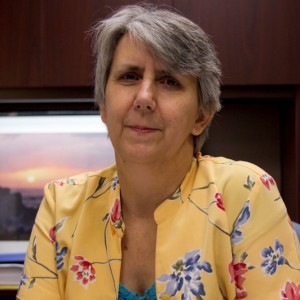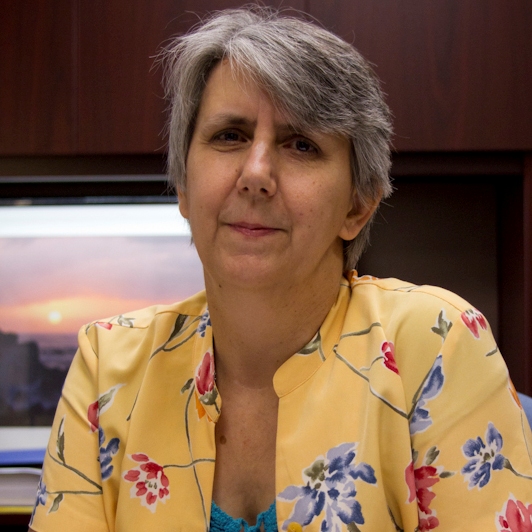 Not long ago, authorities discovered a 15-year-old Wisconsin girl in a suburban Atlanta hotel room who was “employed” in the sex trade.
Not long ago, authorities discovered a 15-year-old Wisconsin girl in a suburban Atlanta hotel room who was “employed” in the sex trade.
With her at the time, was her one-year-old daughter.
If we don’t understand how a girl can end up thousands of miles away from home, we really don’t understand the tragedy of human trafficking. Young people are being stalked, pursued, and, against their will, persuaded to become prostitutes. Atlanta, where I live, has one of the highest rates of children working in the sex trade in the United States.
Many in law enforcement and others who are working to save these girls are struggling to fund solutions. On Aug. 1, 2011, more than 400 people in local, state and federal law enforcement met in Atlanta with nonprofit organizations, such as Wellspring Living, and others that have been working to end human trafficking.
Gov. Nathan Deal indicated that one of his priorities is solving the exploitation of young children in Georgia. In 2009, the Governor’s Office for Children and Families established the Georgia Care Connection, to act as a one-stop agency to assist girls identified as having been sex trafficked in Atlanta. This group is just a small bandage on the weeping sore that covers the entire nation.
In fact, the U.S. Department of Justice estimated in 2004 that between 14,500 and 17,500 were being trafficked nationwide.
Most suburbanites would be shocked to realize that it’s our daughters who are being enticed by pimps bent on exploiting their youth. Girls, like the one from Wisconsin, are being shuffled across the United States and the world to become employed in the sex trade.
Georgia just passed a new bill, HB 200, which was implemented on July 1, 2011. It increases the fines and jail times of the trafficker, instead of criminalizing minors who are discovered to be involved in the sex trade. San Francisco has experimented with the other criminal in this transaction, the “john” who purchases the sex. The First Offender Prostitution Program, commonly known as “John School,” has educated men about the awful side of prostitution. More than 5,000 have attended “John School” and research has shown that the process reduces recidivism. This success has been replicated in 12 and adapted in more than 25 other cities in the nation within the last 10 years.
Why is it important to decriminalize prostitution by underage girls? At first thought it seems obvious that prostitution is a criminal activity. But, let’s put ourselves into the high heels of a typical sex-trafficked minor for a moment. At 14 you’re living with your mother in a village in Mexico when an older boy offers to marry you and take you to the States. However, instead of “marrying” you, he brings you to Cartersville, Ga., where he locks you and five other young girls into a house that’s furnished only with mattresses on the floor. You’re forced to “service” up to 30 men a night. You’re 16 and tired of the “life,” but you’ve been told that if you’re discovered the police will throw you in jail.
“If jail is the only option available to police officers, the girl will be pushed through the criminal justice system and will quickly find herself back under the control of her pimp,” said Jessica L. Smith, communications coordinator for Wellspring Living in Tyrone, Ga. “Taking a girl to prison doesn’t end the cycle. Decriminalizing the girls and providing a viable way out of the life does.”
Wellspring Living provides a home, instead of a prison cell to restore and rehabilitate girls between the ages of 12 and 17 who have been trafficked. “Approximately 100 girls are providing sex to strangers every night in Georgia,” said Smith. “The pimps prey on the vulnerable girls who may have been runaways or come from an alcohol or drug-addicted home. The girls aren’t making a choice, but become involved in the sex trade out of necessity.”
As a mother to seven sons, aged 17 to 30, I wonder why our schools don’t have a miniature version of “John School” during sex education in middle or high school? We teach them about the ugliness of STDs and drug overdoses. Why not put a concentrated effort into teaching them to respect and protect every human life?
Especially prostitutes.
Further Reading on this Issue:
Bales, Kevin & Soodalter, Ron, The Slave Next Door: Human Trafficking and Slavery in America Today,
(2010), University of California Press.
Batstone, David, Not for Sale: The Return of the Global Slave Trade—and How We Can Fight It, (2010)
Harper One.
Bowley, Mary Frances & Lund, James, A League of Dangerous Women: True Stories from the Road to
Redemption (2007), Multnomah Books.
Smith, Linda & Coloma, Cindy, Renting Lacy: A Story Of America's Prostituted Children (A Call to Action)
(2009) Shared Hope International.

Appreciate the message here, but there are several issues occurring in the US and in GA. Youth (male and female) under the age of 18 are exploited for labor and sex. Adults (male and female) are also exploited for labor and sex. Currently, are no statistics being kept in any city, state or nationally for this. Since sexual exploitation is in the media, training, easier to take to court than labor cases – it can appear that there currently is more sex trafficking than labor trafficking, but that may not be the case.
There does need to be education in the schools – but not just aimed at “the boys” or “the girls”. Comprehensive sexual health teaches all youth to respect their bodies, what sexual exploitation is and how to get help.
Also – the estimated 14,500 – 17,500 is the number of persons estimated to be trafficked into the United States every year. This includes men, women and youth – all foreign born immigrants – who are trafficked for forced labor, domestic servitude and sexual exploitation.
The current Georgia Safe Harbor legislation is not decriminalization. A youth still is treated as a criminal and has to “prove” he/she was trafficked prior to receiving any services. This would never happen to a youth who was raped, molested or sexually abused by a parent, pastor, teacher or coach.
If you have been recently diagnosed with STD, you may be upset and confused and think your sexual life is over. However, it’s not the end of the world, and it’s not the end of your social life. You are not alone! Check positive-single.com. Many cities in the US and around the world have herpes/HIV/HPV/Hepatitis social and support groups that you can join to meet others who are in the same situation.